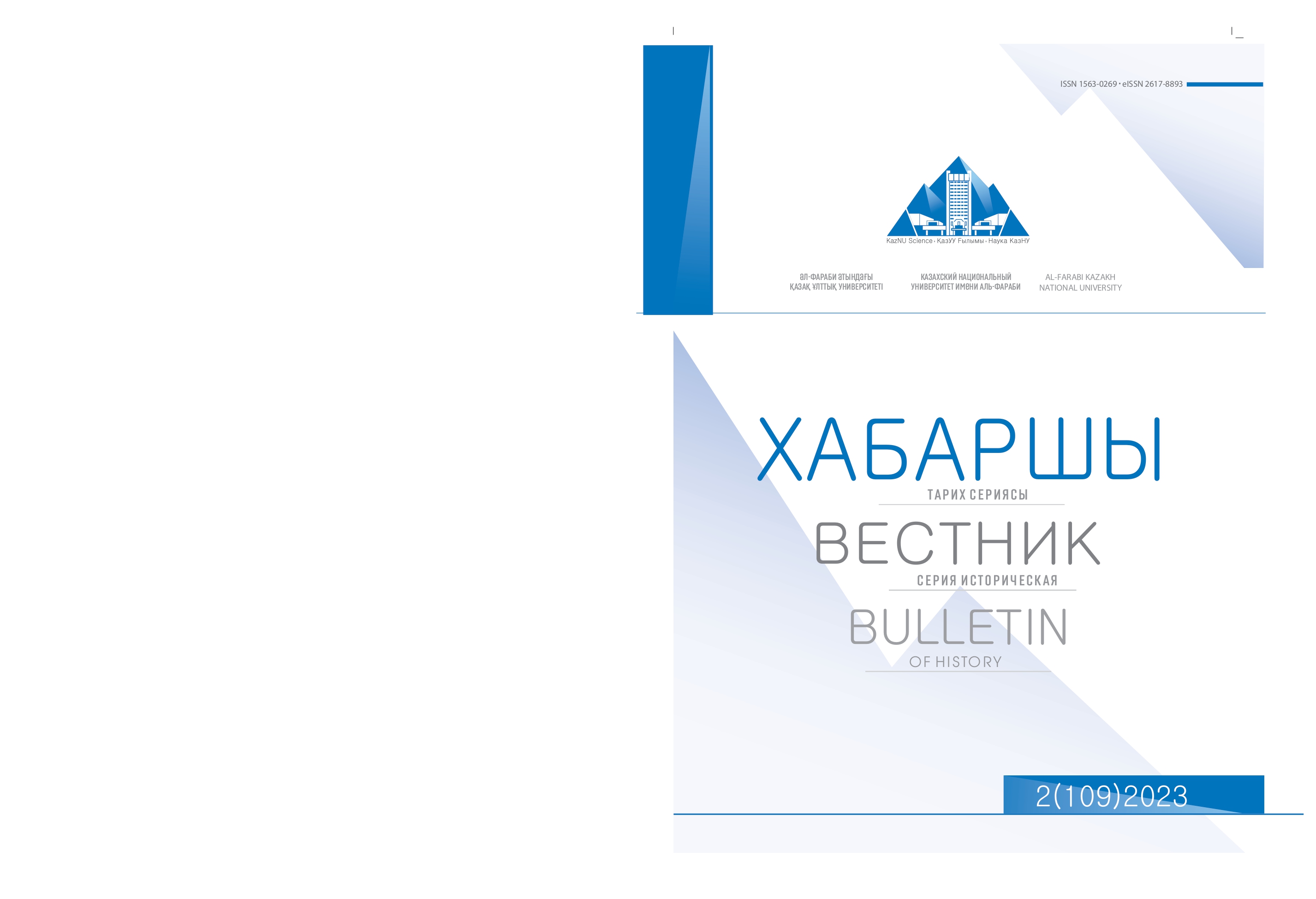The religious atmosphere of uluses of Chagatai and Jochi: internal and external motivation in the support of islam by representatives of authoritarian power
DOI:
https://doi.org/10.26577/JH.2023.v109.i2.01Abstract
Abstract. The article attempts to objectively analyze the problem of Islamization in the history of the Chagatai and Jochi uluses in the aspect of personal choice of religion and initiation of the process of Islamization by the supreme rulers of certain medieval post-Mongolian states. In the literature of the Soviet period, a superficial, vulgar sociological view of the use of religion by the “super class” was widespread instead of intention to understand the phenomenon of conversion to a new faith as a complex socio-psychological phenomenon driven by both subjective and objective motives. On the example of the conversion`s narratives of the Chagataid khans of Moghulistan and uluses of Chagatai in whole, as well as the Golden Horde, and comparative study and analysis one can determine the great influence on the worldview and behavior patterns of the Turkic-Mongol rulers of medieval Sufism and a special religious atmosphere in which not only ordinary people, but also khans fell under the spiritual charm of the mystical sheikhs, beginning to believe their predictions and heed their advice. In rare cases, religion could be an end rather than a means for the ruler, leading him even to renounce power (Tarmashirin, Tuda Mengu). At the same time, the well-known Islamizing khans rationally realized the objective benefits of the Islamization of the state from the interests of social integration, stimulation of international trade, diplomacy. The rulers skillfully used the power of religion to solve the problems of domestic and foreign policy, taking into account the integrality of Islam, as well as the authoritarian aristocratic type of statehood. Islamization opened up the possibility of strengthening the power of the ruling dynasty and the foundations of society through a new sacred legitimization, as well as the formation of a new Muslim Turkic-Mongolian identity.
Keywords: Central Asia, rulers, Chagatai ulus, uluses of Chagatai and Jochi, Moghulistan, Islamization, motivation, Sufism, proselytism.




